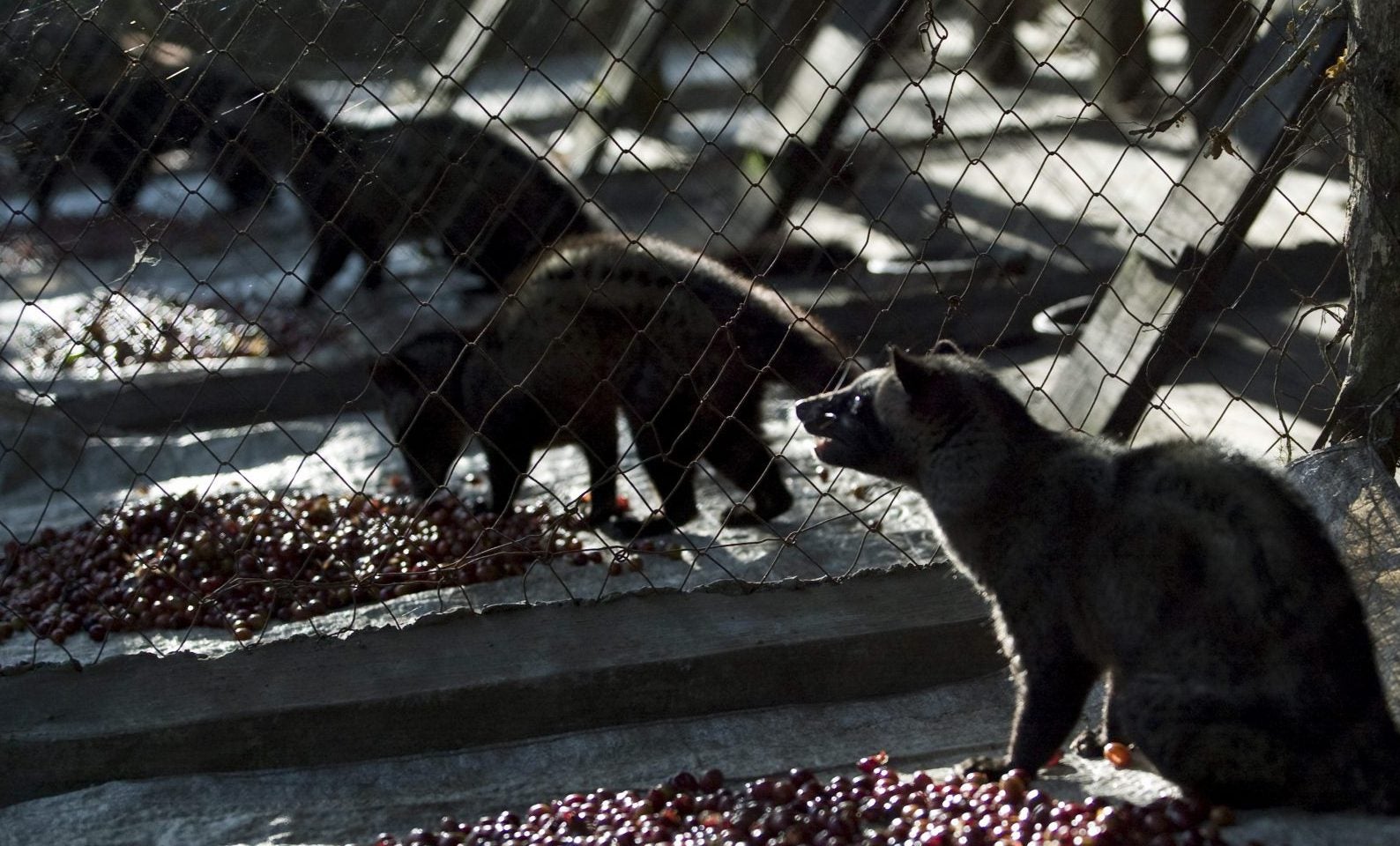The world’s most expensive coffee is a nightmare for the animals who produce it
The most expensive coffee in the world can go for $100 a cup, but it comes with a hidden cost: the well-being of a forest-dwelling cat-like creature native to southeast Asia.


The most expensive coffee in the world can go for $100 a cup, but it comes with a hidden cost: the well-being of a forest-dwelling cat-like creature native to southeast Asia.
Even in the world of specialty coffees and nitro cold brews, civet coffee—also known by its Indonesian name, kopi luwak—is a benchmark for caffeinated luxury. The brew, characterized by its nuttier, less acidic taste, is made from partially digested coffee beans that have been excreted by the Asian palm civet. While the price of civet coffee has been declining since 2013, the beans still go for $200-$400 per kilo and are increasingly sought out by tourists.
Historically, kopi luwak was made using palm civet droppings harvested in the wild. But the coffee’s consistently high price has led to civets being captured in the wild and kept in cramped cages on coffee plantations. A recent report published in the journal Animal Welfare, which assessed the living conditions of 48 palm civets living on 16 plantations, described emerging civet coffee production methods as “an enslavement industry.”
“Sadly, many tourists are blind to the cruelty associated with caged civet coffee, and even line up to take a photo to share on social media,” says Neil D’Cruze, a wildlife researcher at the nonprofit World Animal Protection, and co-author of the study.
While wild civets snack on coffee beans as part of their balanced diet, those in captivity are overfed unripe beans. The typically nocturnal animals can also suffer from being caged in claustrophobic sunlit spaces. When agitated, they fight amongst themselves, gnaw on their own legs, and have been found passing blood in their stool. Many grow sick and die due to stress.
Since 2013, at least 13 retailers have removed civet coffee from their shelves—including UK stores such as Harrods and Selfridges—or made promises to investigate the production process. But regulating the industry is a complicated idea: Animal rights advocates say it’s difficult to track the origin of civet coffee beans, and even more difficult to determine whether they’re cruelty-free.
“While Indonesia is the center of this senseless fad, there are producers apparently in Thailand, Vietnam and perhaps other parts of the region,” says Chris Shepherd, deputy regional director of the conservation NGO Traffic in Southeast Asia. “Much more research needs to be done to understand the full scale of this industry, and to explore ways of reducing demand for a beverage that causes suffering to wild animals.”